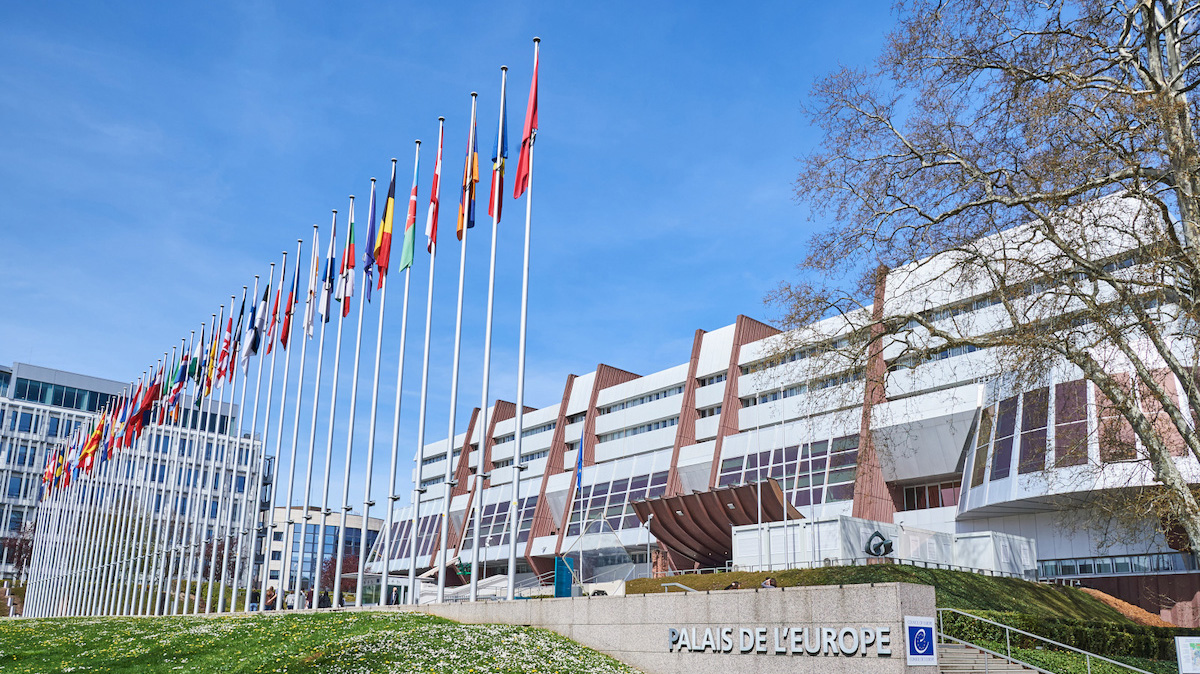The Council of Europe has created a common legal space and a death-penalty free zone for 830 million people across 47 countries; since 1998, everyone in Europe has had an ultimate right to directly appeal to the European Court of Human Rights to uphold their basic human rights. The Strasbourg Court has dealt with more than 800,000 such applications.
The Council of Europe’s Committee of Ministers has overseen the implementation of nearly 20,000 judgments from Court, which has changed millions of people’s lives in many different ways across the whole continent (see here for some examples). Recent reforms have made the process more effective: over 2,000 “leading” cases, highlighting important structural problems, have been closed since 2010.
We have developed over 200 legally-binding international treaties to help protect people from particular threats including torture, violence and sexual abuse as well as raising global standards on issues such as cybercrime and data protection.
45 European countries and the European Union have signed the ground-breaking Istanbul convention on violence against women and domestic violence; 6 member states have ratified the convention since the beginning of 2018, bringing the total number of ratifications to 34.
All 47 Council of Europe countries have signed the Lanzarote convention on protecting children from sexual exploitation and abuse – 44 have ratified the convention so far.
54 countries around the world are now covered by the Council of Europe’s data protection convention and 63 countries – including the US, Australia and Japan – are covered by the convention on cybercrime.
The Council of Europe has developed a key competence in the area of sport with its three unique conventions on match-fixing, doping and safety and security at sporting events.
Our platform for the protection of journalists published 140 alerts concerning 32 member states in 2018 – many of which were dealt with or resolved by the end of the year.
We help states to meet European standards through expert monitoring and advisory bodies including the Committee for the Prevention of Torture (CPT), the Group of States against Corruption (GRECO) and the European Commission for Democracy through Law (Venice Commission). Our European Commission against Racism and Intolerance (ECRI) monitors incidents of racism, discrimination and hate speech and issues recommendations to member states.
The Council of Europe has concluded dedicated human rights action plans with 6 member states, most recently Bosnia and Herzegovina and Ukraine, and carries out cooperation activities with many other member states and neighbouring countries and territories.
We promote and protect Europe’s cultural and natural heritage, notably through the European Cultural Convention which covers 50 countries across the continent.
The Council of Europe regularly monitors the protection of national minorities and regional and minority languages and has also set standards in the area of education for democratic citizenship.
The European Union and the Council of Europe have developed a strong strategic partnership since 2006, resulting in intensified cooperation and an EU contribution to the Council of Europe budget of over €33 million euros in 2018.
Our main challenges today include:
Rising levels of nationalism and extremism, together with hate speech, directly challenge the organisation’s core values and the principles of international cooperation;
Developing strategies to help deal with emerging challenges such as artificial intelligence and modern types of slavery;
Reinforcing social rights through the European Social Charter and tackling inequalities in society;



